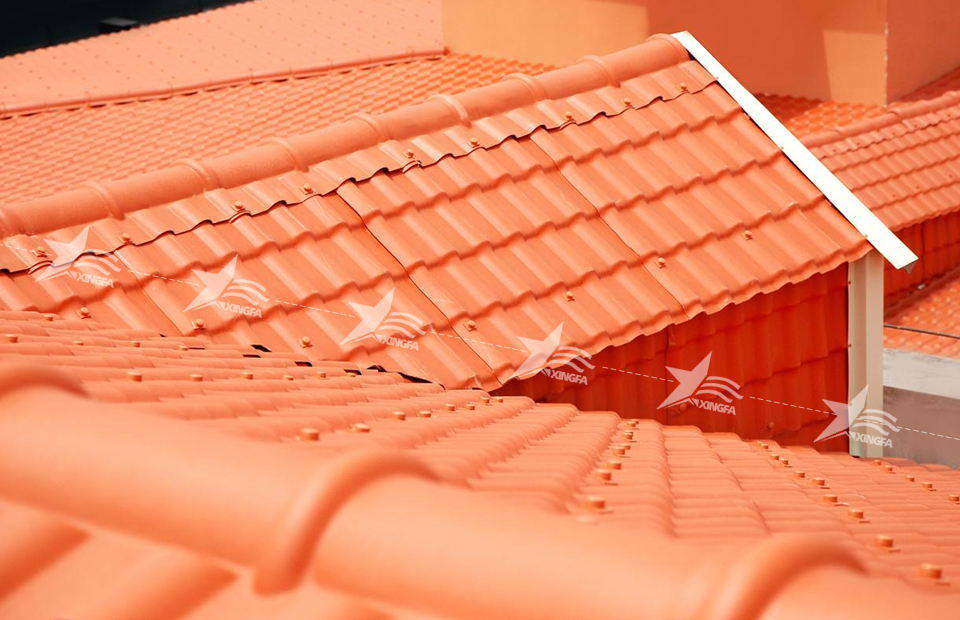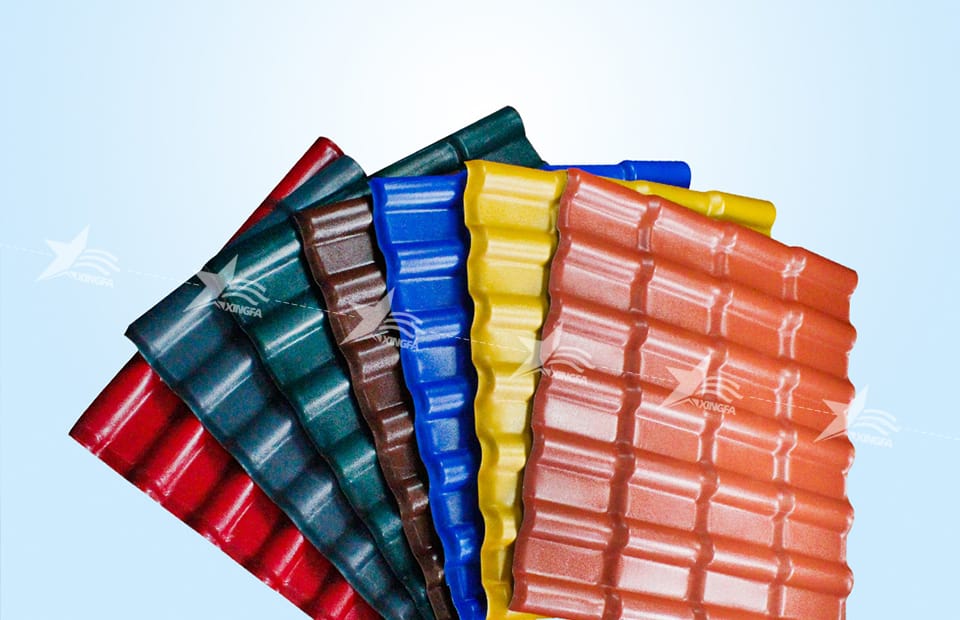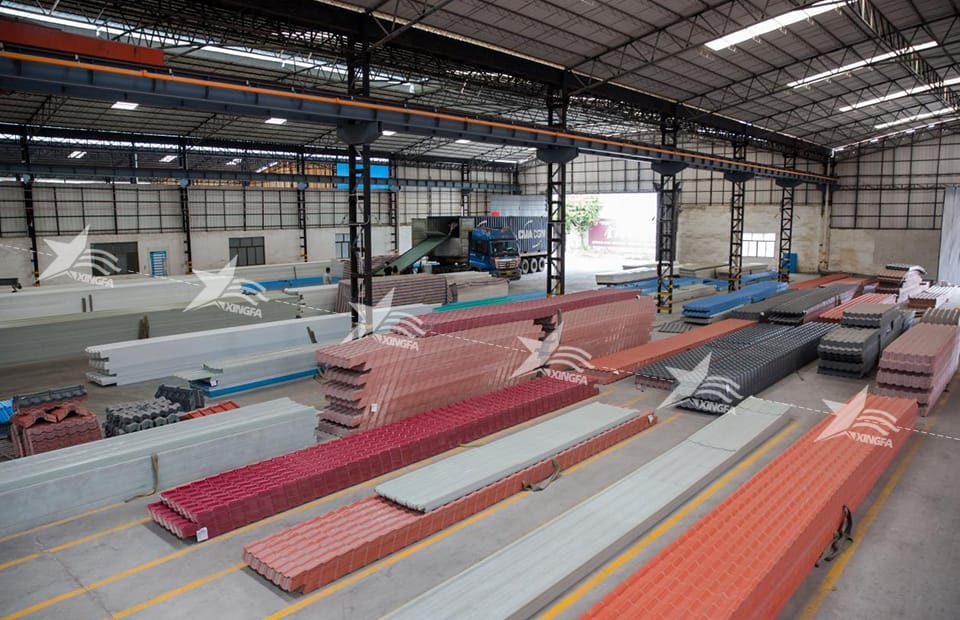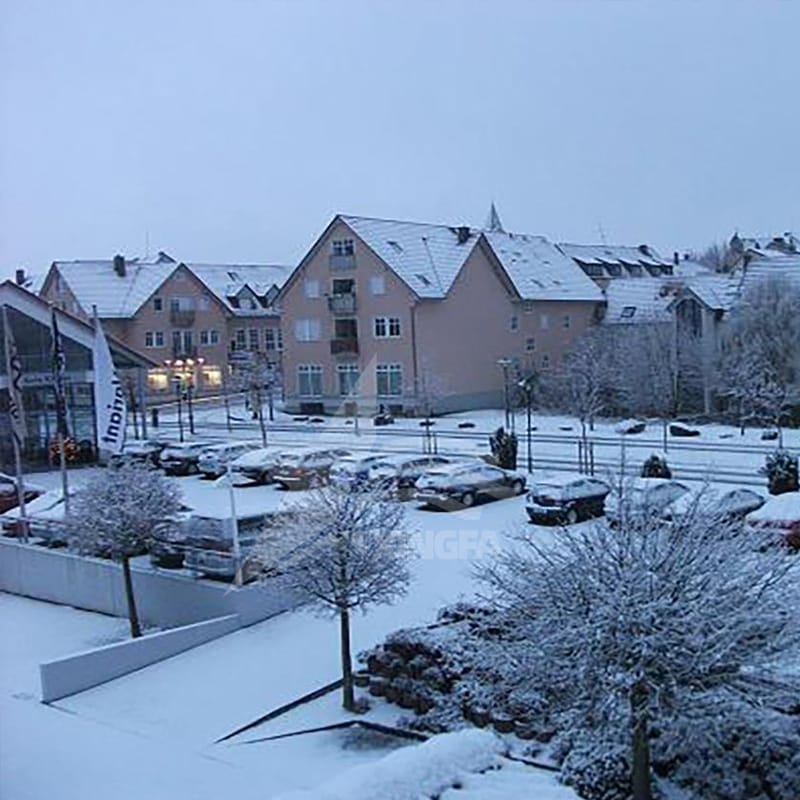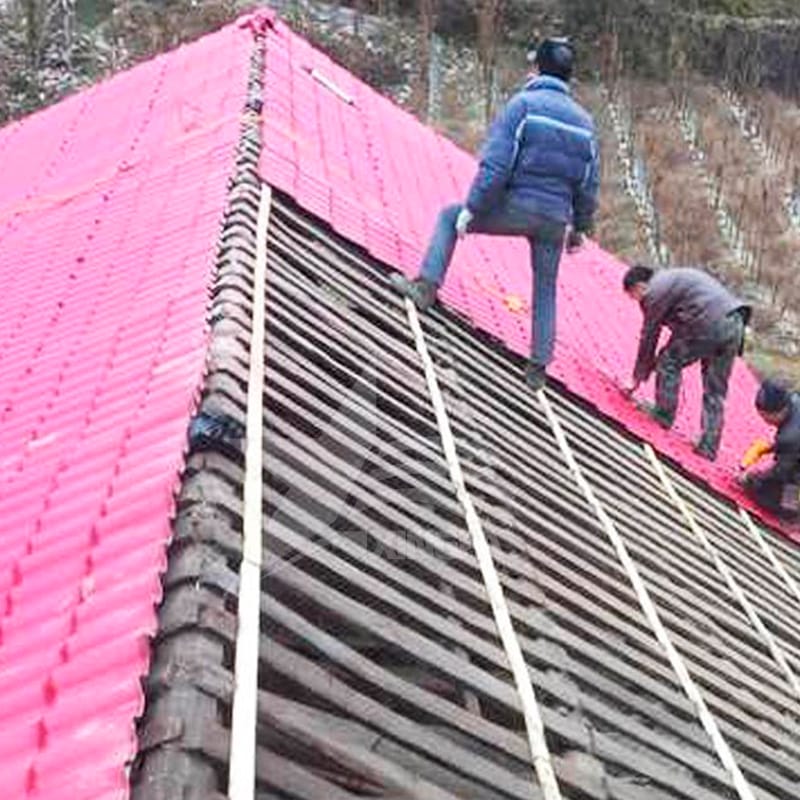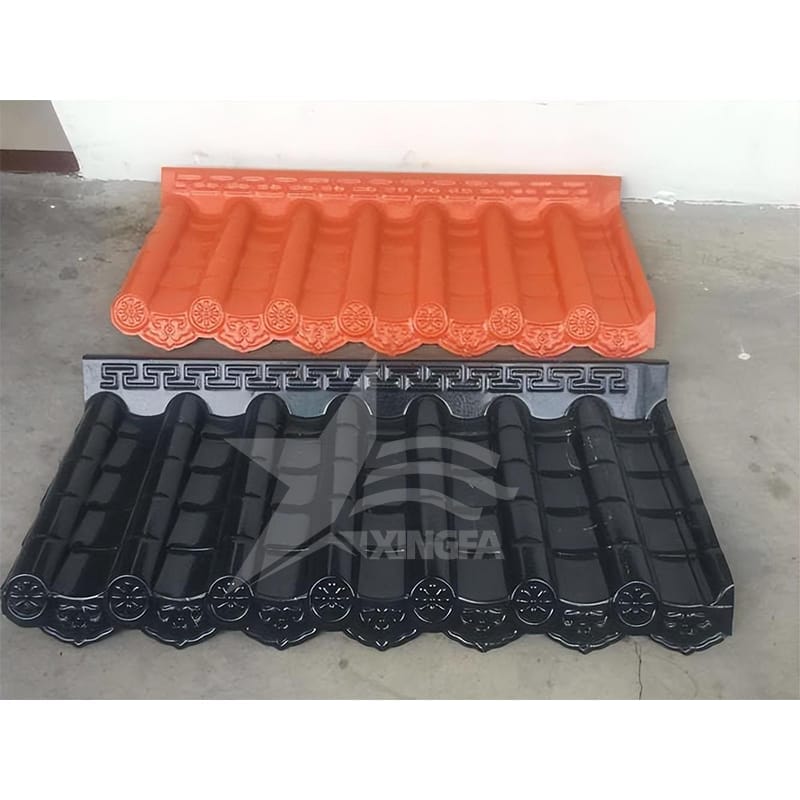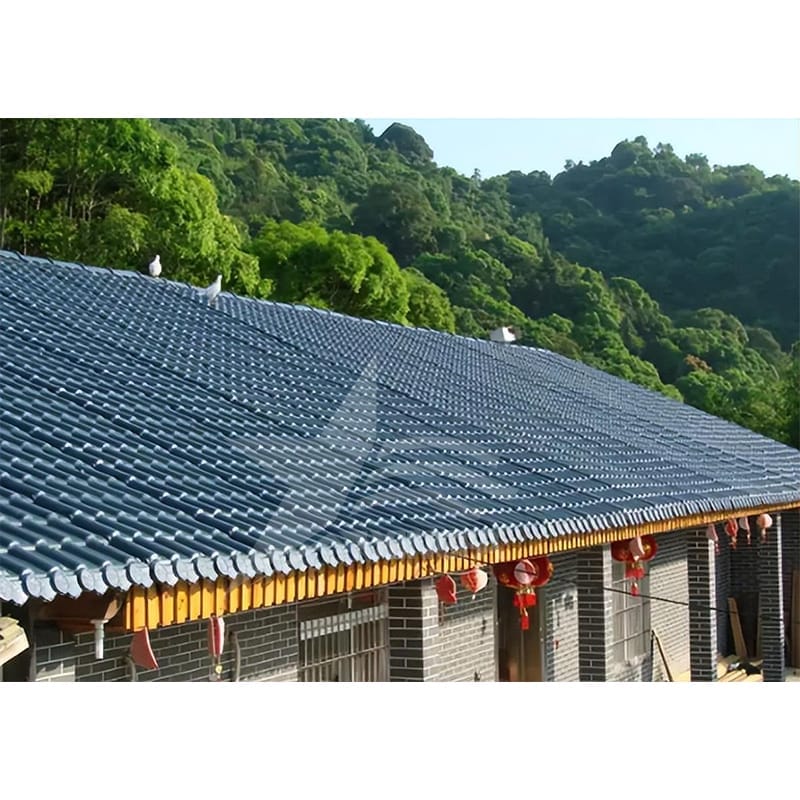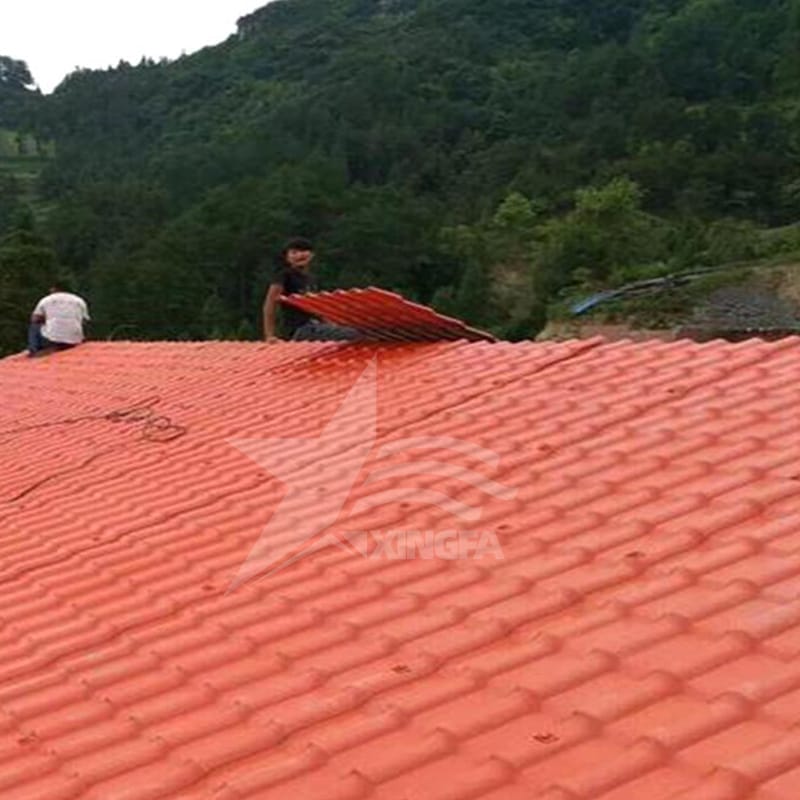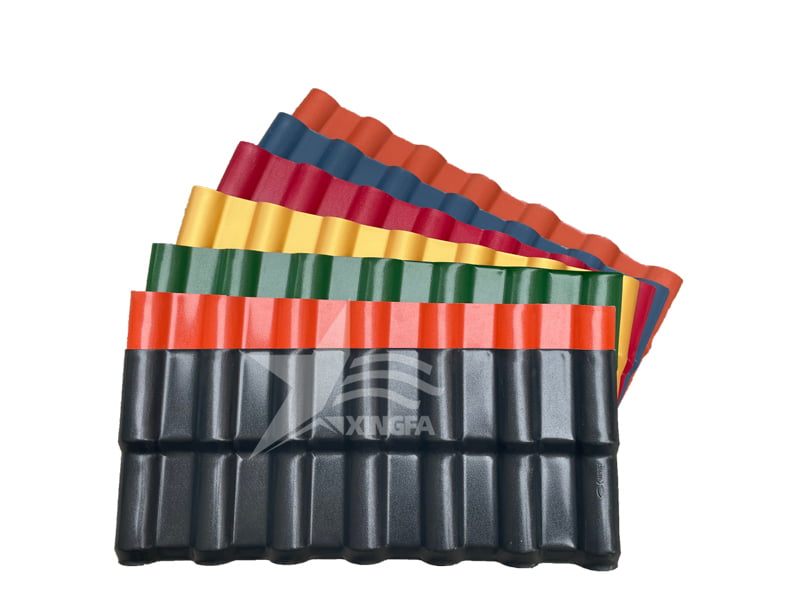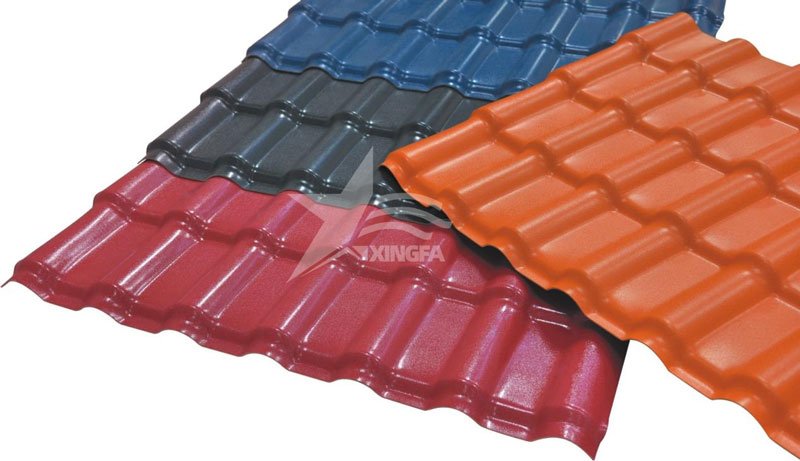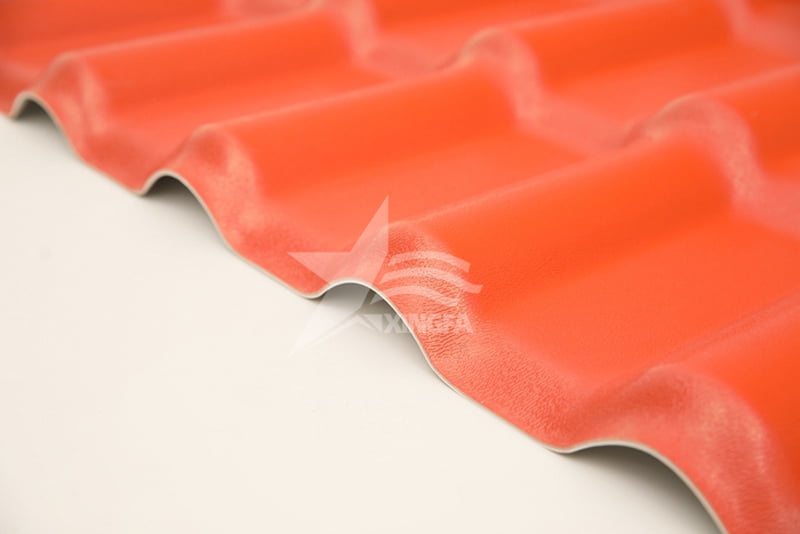As a new type of roofing material, resin tiles are increasingly favored for their aesthetic appeal, durability, and excellent waterproof performance. But how exactly are resin tiles made? Let’s uncover the mystery behind the creation of resin tiles and see how they come to life!
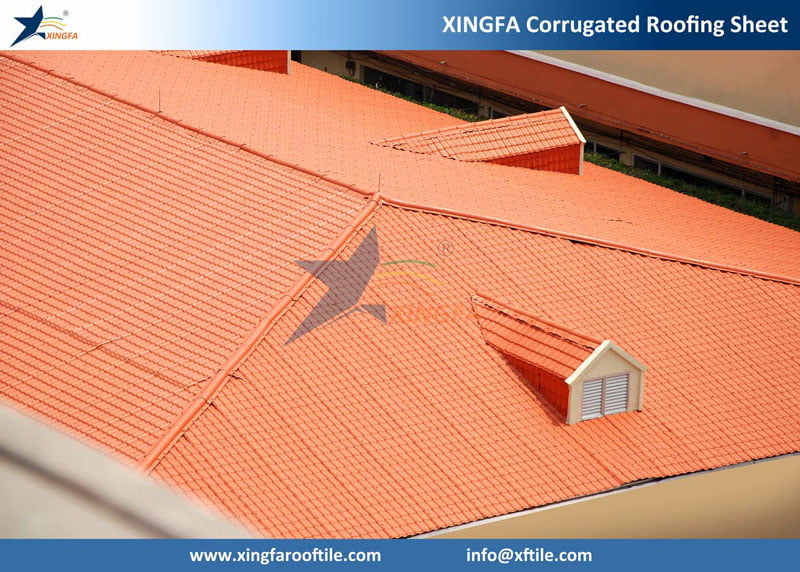
## Main Components of Resin Tiles
Resin tiles are primarily made from PVC (polyvinyl chloride) resin, combined with pigments, fillers, plasticizers, and other auxiliary components through a process of mixing and blending. PVC resin is a colorless, transparent, or yellow thermoplastic resin known for its chemical stability, mechanical strength, and electrical insulation properties. These attributes give resin tiles their superior weather resistance, corrosion resistance, and flame retardancy, allowing them to perform well in various harsh environments.

## The Production Process
### Pre-Treatment of PVC Resin Pellets
The production process of resin tiles begins with the pre-treatment of PVC resin pellets, which includes crushing, screening, and mixing to ensure the quality and uniformity of the raw materials. The pre-treated PVC resin pellets are then mixed with fillers, pigments, plasticizers, and other auxiliary components in specific proportions to create a homogenous blend.
### Extrusion and Forming
The blended raw materials are fed into an extruder for forming. The extruded sheets typically have a width of 2-3 meters. These sheets undergo a series of subsequent processing steps to become the resin tiles we commonly see.
### Cutting and Shaping
First, the extruded sheets are cut to the required length. The cut sheets are then placed in molds and subjected to heat and pressure to form the characteristic wavy surface texture. This step enhances the aesthetic appeal and compressive strength of the resin tiles by giving them a natural corrugated texture.
### Curing and Hardening
The shaped sheets are placed in constant temperature and humidity equipment for curing, which helps the PVC molecular chains gradually cross-link, increasing the hardness and strength of the resin tiles.
### Finishing and Packaging
After curing, the resin tiles undergo additional processing steps such as grinding and deburring to ensure smooth edges and surfaces. Finally, the finished tiles are packaged and stored in warehouses, ready to be shipped to distributors and construction sites.
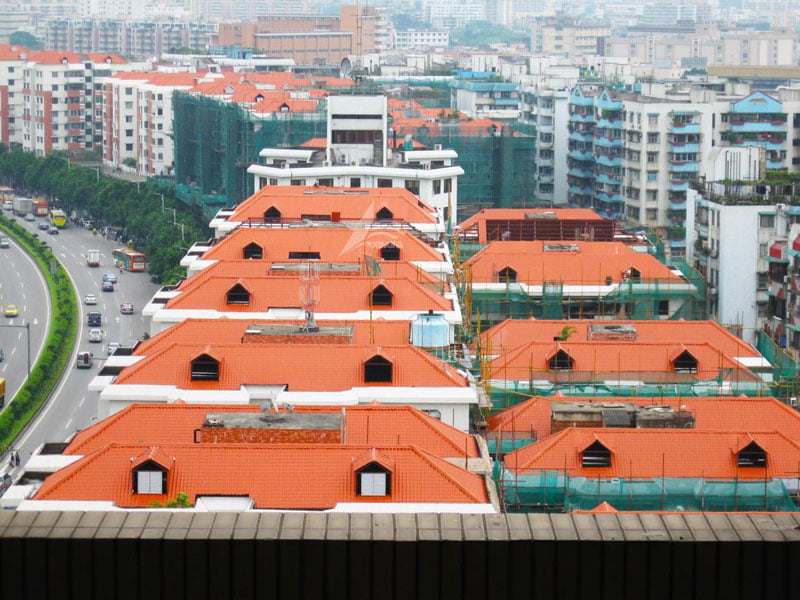
## Commitment to Quality
Although the manufacturing process of resin tiles may seem straightforward, it involves multiple technical steps and stringent quality control measures. As a professional resin tile manufacturer, we adhere to the principle of quality first, meticulously overseeing every detail of the production process to provide our customers with high-quality resin tiles. We hope that through this introduction, you gain a deeper understanding of this remarkable building material and appreciate its contribution to the development of the construction industry.

